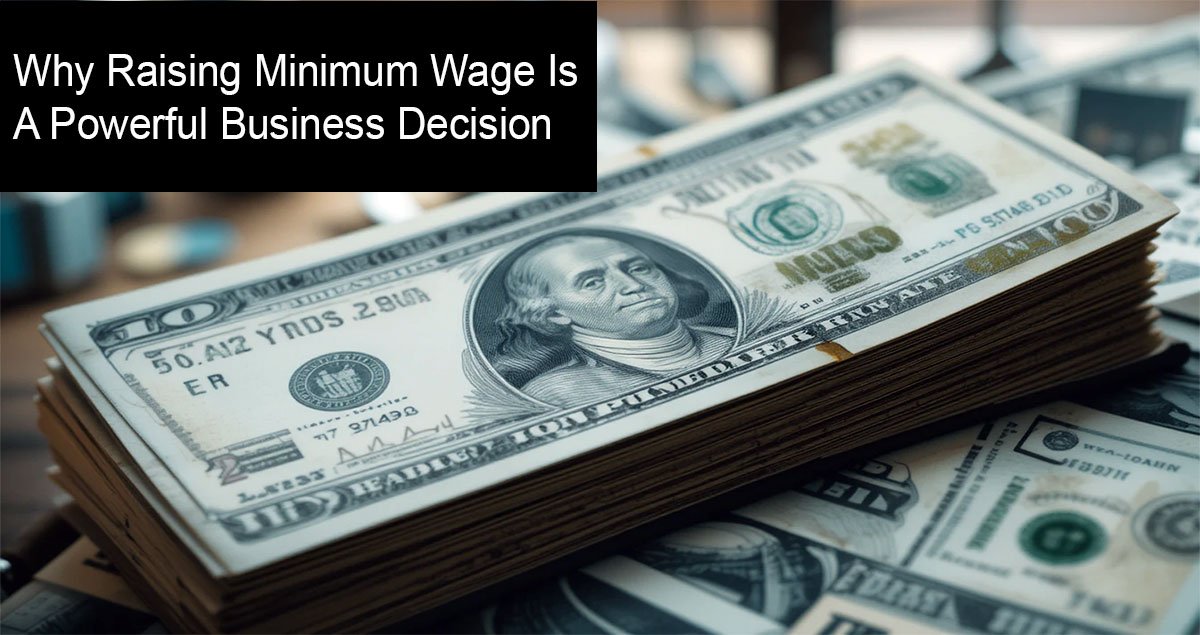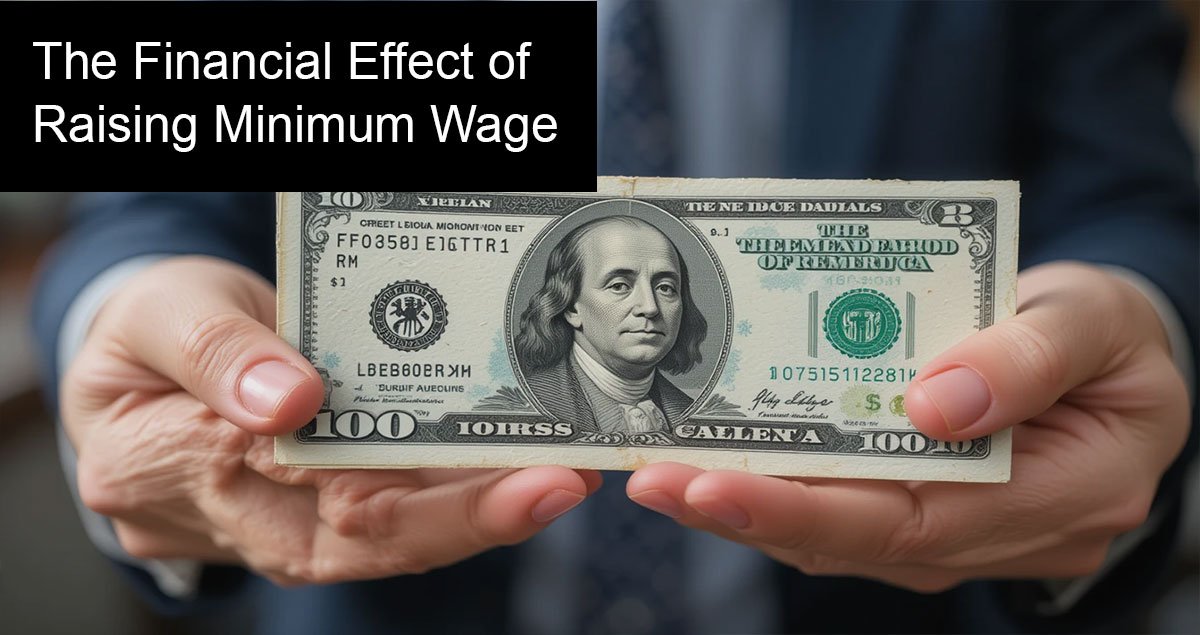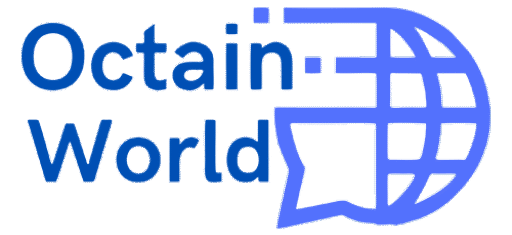Introduction to Minimum Wage
Minimum wage alludes to the minimum sum of compensation that employers are lawfully obligated to pay their workers for their work. Built up to secure specialists from over-the-top misuse, the concept of minimum wage has advanced over the decades since its beginning in the 1930s with the Reasonable Labor Standards Act in the United States. This enactment was ordered amid the Incredible Misery, pointing to giving an essential standard of living for specialists while also fortifying financial growth.

Currently, discourses encompassing minimum wage are more significant than ever, as different locales have proposed alterations to meet the rising cost of living. In later times, developments pushing for a minimum wage increment have picked up noteworthy momentum, with advocates contending that raising the minimum wage can lead to various benefits such as improved representative maintenance, higher wages, and increased productivity. In any case, some restrictions propose a minimum wage increment may antagonistically influence small businesses and lead to higher costs for customers. Subsequently, understanding the multifaceted suggestions of a minimum wage change is basic for commerce leaders.
Arguments in favor of raising the minimum wage regularly cite the positive financial impacts it can have, such as upgraded buyer investment control and financial incentives. On the other hand, pundits express concerns around the potential for work misfortunes and diminished enlisting, especially for small businesses regularly working on thin margins. This polarity presents a complex wrangle, as different components can impact the results of minimum wage approaches in diverse financial environments.
The progressing dialogs around minimum wage highlight how basic it is for trade decision-makers and workers alike to lock in with these subjects. Whether assessing the potential monetary focal points of raising representative compensation or surveying the effect of reasonable pay on commerce success, recognizing the broader implications of minimum wage alteration remains fundamental to informed discourse in the labor market. As we dive more deeply into this point, we will investigate the reasons why raising the minimum wage is considered an effective commerce choice, especially for guaranteeing maintainability and growth.
The Financial Effect of Raising Minimum Wage
Raising the minimum wage presents critical monetary benefits that can resound all through the neighborhood and national economies. Different things about the outline that expanding the minimum wage leads to increased buyer investing, which is a crucial driver of financial development. When workers gain more, they tend to distribute a bigger portion of their salary toward nearby businesses, hence invigorating requests for products and services. For instance, a report from the Financial Approach Established demonstrates that raising the minimum wage might increase to roughly $22 billion in shopper spending across the country, empowering businesses to thrive.

Furthermore, a rise in minimum wage has the potential to lessen destitution levels. According to the Center for Financial Approach Inquiry, a $15 minimum wage seems to lift millions of laborers out of destitution, putting them on a more steady financial footing. This move not only benefits the personal representatives but also cultivates a more adjusted financial environment, where a more grounded center lesson can rise, eventually driving forward financial strength and sustainability.
Case studies from shifting locales illustrate the positive results of minimum wage change. For instance, following the implementation of higher compensation in Seattle, it was found that numerous businesses experienced lower worker turnover rates and improved efficiency levels. This authenticates the thought that reasonable pay upgrades represent inspiration and decrease the costs related to contracting and preparing modern specialists. As businesses recognize the money-related preferences of raising representative compensation, they regularly encounter an uptick in resolve and an overall improvement in working environment culture, which translates into superior client service and retention.
Overall, the broader financial benefits of raising the minimum wage highlight its significance as a catalyst for financial advancement. Not only does it improve customer investing and reduce destitution, but it also can serve as a capable instrument for advancing sustainable development and budgetary security within communities, driving a fruitful, competitive trade landscape.
Benefits to Employees and Business Culture
Raising the minimum wage can have significant benefits for both workers and the general trade culture. When laborers get higher compensation, they regularly encounter expanded work fulfillment, leading to a more persuaded and locked-in workforce. Representatives who feel reasonably compensated are ordinarily more committed to their employment and are less likely to look for work somewhere else. This specifically impacts worker maintenance rates, as companies that pay their specialists satisfactorily tend to encounter lower turnover. The costs related to enlisting, contracting, and preparing unused workers can be burdensome for businesses; hence, contributing to raising the minimum wage can be a key move that can translate into noteworthy budgetary advantages.

Moreover, a more joyful workforce boosts assurance and cultivates a sense of having a place within the organization. This positive commerce culture empowers collaboration among group individuals, improving general efficiency. Companies that prioritize reasonable pay frequently see execution advancements, as higher compensation can lead to expanded motivation among employees, resulting in a more successful and imaginative workforce. Strikingly, considerations and tributes from companies that have actualized a minimum wage increment reflect such triumphs. For instance, businesses watching progress representative fulfillment as often as possible report an outstanding uptick in client satisfaction quality, eventually affecting the bottom line favorably.
The usage of the minimum wage change, not as it was, illustrates a commitment to social duty, but moreover reinforces the brand picture of commerce. In today’s advertising, customers are increasingly centered on moral homes, and companies that advocate for fair pay are regularly rewarded with client loyalty. The exchange between reasonable recompense and commercial victory cannot be exaggerated. As the scene advances, adjusting a company’s wage to align with standards of value can abdicate capable reasons to raise the minimum wage, in this manner cultivating a work environment balanced for sustained development and innovation.
Challenges and Misconceptions About Raising Minimum Wage
Raising the minimum wage is regularly met with a whirlwind of concerns, especially concerning potential work misfortunes and expansion. A predominant, misguided judgment is that expanding the minimum wage will lead to far-reaching cutbacks, as businesses may battle with higher labor costs. Be that as it may, different studies demonstrate that the real effect on work levels is less clear-cut. For illustration, an inquiry from the University of California, Berkeley, recommends that minimum wage increments do not necessarily cause noteworthy work misfortune, but maybe can lead to improved worker retention and increased productivity. These variables can balance the starting costs related to raising the minimum wage.
Moreover, adversaries of minimum wage change regularly cite inflation as a likely result of wage increments. They contend that higher compensation results in higher costs for products and services, eventually burdening shoppers. However, proof appears that direct increments in minimum wage regularly do not accelerate exceptional cost climbs. A report from the National Business Law Venture highlights that businesses frequently assimilate these costs through increased productivity and reduced turnover, challenging the idea that inflation is an inevitable result of reasonable pay initiatives.
Concerns around small businesses bearing the brunt of minimum wage increments are too common. Whereas it is genuine that small businesses might be involved in starting budgetary strain, various case studies uncover that numerous small businesses adjust effectively to wage increments by improving operational productivity and boosting sales through upgraded representative motivation and fulfillment. In the long run, the monetary focal points of raising representative compensation can lead to lower enrollment costs and improved client service, creating positive financial effects.
Ultimately, it is fundamental to address these misinterpretations through observational proof and adjusted talks. An astute minimum wage arrangement, as it were, underpins laborers but can moreover contribute to feasible commerce victory, challenging the shame encompassing minimum wage increases.
Comparative Analysis: Minimum Wage Across Different Regions
Understanding the scene of minimum wage laws universally is fundamental for comprehending their implications on trade execution and financial results. Distinctive districts receive different minimum wage approaches, which can lead to significant incongruities in commerce performance and worker welfare. In contrast to United States standards, minimum wages established by Australia and Germany exceed American levels substantially. These higher rates can emphatically impact worker maintenance and motivation, as specialists feel more esteemed and financially secure.

To compare, let us look at a few particular districts. In Australia, the minimum wage is around AUD 20.33 per hour, whereas essential compensation in the U.S. drifts around USD 7.25 per hour, with a few states executing higher rates. Thus, businesses in locales with higher compensation regularly report expanded efficiency, ascribed to persuaded workers who are less likely to leave their jobs. A noteworthy point of talk is the financial impacts observed in nations like Sweden, where high minimum wages are matched with strong social security nets, leading to negligible impacts on unemployment rates.
Moreover, looking at regions that have executed minimum wage increments in the United States uncovers basic experiences. For instance, cities like Seattle have seen both financial development and flourishing businesses post-policy changes. In differentiation, ranges with stagnant minimum compensation regularly encounter slower financial development and higher turnover rates, highlighting the benefits of expanding minimum wage, such as drawing in talent and lessening hiring costs.
In conclusion, the comparative investigation of minimum wage across different locales serves to emphasize the compelling reasons to raise minimum wage. By successfully tending to wage crevices, businesses can make a more evenhanded work environment, eventually driving to more noteworthy overall success. This warrants an assist thought on the minimum wage approach for small businesses, especially as we look towards minimum wage change benefits in 2025 and beyond.
Case Studies: Successful Implementation of Minimum Wage Increases
Numerous case studies illustrate the effective execution of minimum wage increments and the positive impacts on businesses and communities. One conspicuous illustration is the city of Seattle, which expanded its minimum wage incrementally to $15 per hour over a few long years. The city expected challenges such as expanded operational costs for small businesses; in any case, it thinks about uncovered that most businesses adjusted positively and detailed increased representative compensation and motivation. Numerous businesses too saw an increment in efficiency and, by and large, representative fulfillment, which contributed to their long-term success.
Another striking case is San Francisco, which implemented a minimum wage increase to $15 in 2018. The neighborhood considers it found that the arrangement did not lead to critical work misfortunes. In step, the businesses experienced more prominent worker dependability, lessening turnover rates. Eateries, in particular, appeared to have advanced in benefit quality due to a more propelled workforce. The city’s commitment to reasonable pay made for a steadier economy, eventually benefiting both bosses and employees.
On a bigger scale, various retail chains, such as Costco and Target, have embraced higher-than-average minimum wage arrangements. Costco, for example, raised its minimum wage to $17 per hour, resulting in lower turnover and higher representative resolve. The chain has reliably positioned itself high in worker fulfillment studies, which specifically connects with their deal execution and client service quality. This approach shows how raising the minimum wage can lead to money-related preferences and boost efficiency in a competitive retail environment.
These case ponderings collectively outline that, or maybe rather than preventing trade benefits, expanding the minimum wage can surrender critical benefits. They serve as effective reasons for other businesses to consider comparative changes. The long-term financial impacts, especially moving toward minimum wage changes in 2025, demonstrate a move toward more impartial pay structures that back sustainable commerce development and representative welfare.
Raising Minimum Wage: Long-term Key Benefits
Raising the minimum wage is frequently seen through the focal point of prompt monetary alterations; in any case, its long-term vital benefits paint a broader picture that can altogether affect businesses. One unmistakable advantage is the enhancement in brand notoriety. Companies that commit to reasonable remuneration can upgrade their open image, driving to expanded client devotion. As shoppers progressively favor moral businesses, raising minimum wage positions a company favorably in a competitive commercial center, aligning it with socially responsible values.

Another noteworthy advantage of expanding the minimum wage is the potential for higher incomes emerging from increased customer spending. As a compensation increment, representatives have more expendable pay, permitting them to spend more on products and services. This shopper investing surge not only boosts quick deals for businesses but also invigorates general financial development. Improved money-related capacity among laborers regularly increases demand for local items and services, hence producing a positive feedback loop useful for different sectors.
Organizations that establish minimum wage levels higher than standard rates enjoy long-term advantages that originate from retaining their employees. Fair pay distributions in the workplace generate growth in worker satisfaction, which decreases personnel turnover. Costs related to hiring and training new staff decrease when the workforce remains stable, which leads to an improved skilled labor force. Employer productivity increases when a stable workforce remains, since workers with experience use their knowledge to boost both qualitative output and operational performance.
The analysis benefits from tables that display benefit margins before and after wage increases to establish valuable monetary insights. The data enables organizations to determine the substantial financial results that occur from minimum wage elevation. The strong reasons for increasing minimum wage extend well beyond employee welfare by establishing a comprehensive framework that promotes long-term organizational achievement.
Policy Recommendations for Businesses Considering Wage Increases
A strategic planning process needs adoption by businesses who want to implement wage increases successfully. The evaluation process starts with a review of present budgets along with analysis of financial fit for proposed minimum wage adjustments. A detailed analysis of the potential impact on labor costs and overall business profits is essential. This five-year review can help determine whether the benefits of raising the minimum wage, such as improved employee motivation and retention, outweigh any immediate financial strain.
A key usage arrangement ought to be created, highlighting the timeline for raising the minimum wage. Continuous increments may be more sensible for small businesses and permit time for altering budgets and operations. This staged approach can moreover help in measuring the effect of the minimum wage increment on efficiency and representative resolve over time. Locking in with partners amid this preparation is significant; discussions with workers and administration can offer assistance, cultivate back, and address concerns related to wage change benefits.
Effective communication is crucial in educating workers about the looming changes. Informing almost all the reasons behind the choice and its anticipated benefits will strengthen belief and straightforwardness within the organization. Businesses ought to highlight how a minimum wage increase relates to the overall vision for the company, particularly concerning fair pay zones and worker welfare. Sharing compelling case studies on minimum wage victory stories can assist in spurring staff and securing buy-in.
Monitoring and surveying the effect of the wage changes over time is similarly vital. Standard assessments of worker turnover rates, efficiency levels, and general financial performance will permit businesses to alter arrangements proactively. This continuous examination will advise and encourage wage arrangement adjustments and illustrate the long-term monetary benefits of raising representative compensation. Eventually, a vital approach to minimum wage increments can improve commercial success by improving worker satisfaction and retention while cultivating a persuaded and profitable workforce.
Conclusion: Embracing Minimum Wage Increases as a Business Strategy
In light of the comprehensive investigation displayed, it is clear that raising the minimum wage is not only a vital social issue but also a vital commercial choice. Businesses that choose to actualize minimum wage increments can involve a huge number of benefits, including higher representative morale, improved retention rates, and increased productivity. These variables combined frame a compelling case for the budgetary points of interest of raising representative compensation, eventually contributing to improved operational efficacy.
The effect of reasonable pay on trade victory is substantiated by various case studies on minimum wage victory, outlining how companies that prioritize representative compensation frequently see a return on investment through raised representative inspiration and commitment. A well-compensated workforce is more likely to lock in profoundly with their roles, driving to lifted efficiency levels and a more dynamic work environment. By understanding how minimum wage influences businesses, pioneers can make educated choices that align with their operational goals.
Moreover, the minimum wage change benefits amplify past prompt monetary suggestions. As commerce pioneers consider the minimum wage increment’s pros and cons, it is basic to recognize that contributing to reasonable compensation contributes to a more economical trade show. The minimum wage 2025 financial impacts are balanced to shape the advertising scene, and early selection of these changes can set proactive businesses apart as industry leaders. Grasping a minimum wage arrangement for small businesses can similarly cultivate community dependability and improve notoriety, eventually deciphering into an important competitive advantage.
In substance, the effective reasons to raise the minimum wage are underscored by the potential long-term benefits for businesses arranged to adjust. Organizations adopt two perspectives regarding rising minimum wages: they consider it to be a critical challenge or an irrelevant matter with detrimental effects. These different perceptions guide companies to either survive and overcome problems or prosper in growing economic conditions.






3reyescasino? Sounds like a party! I’m always ready for some action. Hope they’ve got my favorite table games and a decent bonus. Let’s see if 3reyescasino brings the heat!
Alright, champs! Checked out mu88ai. Decent selection of games and the site’s fairly straightforward. Could be worth a look if you’re bored. Check it out here: mu88ai
Alright folks, I’m giving bk8bet89 a try. Heard some good things about their customer support, so I’m hoping that’s true! The promos look decent too. Worth checking out: bk8bet89